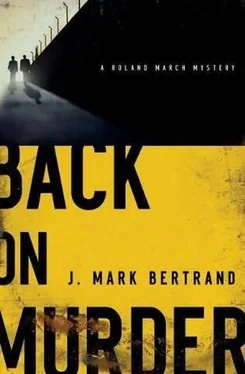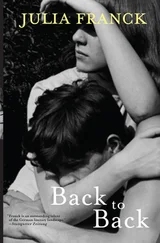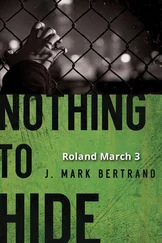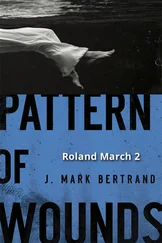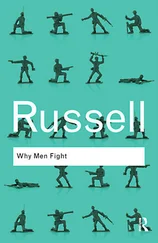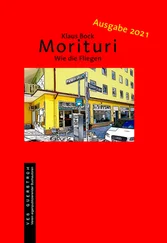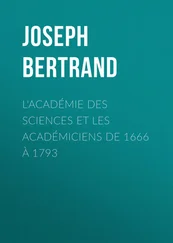“One condition,” she says.
“Anything.”
“You come with me. I’ll introduce you to Donna, and if you still have the guts, I’ll ask her for the swab. That way, no matter what happens, she’ll know it’s not coming from me.”
Not what I was expecting. Not at all. But the prospect intrigues me. I’m not anxious to spend time with the frantic mother, but driving out to the suburbs in the presence of Theresa Cavallo seems like a worthwhile way to spend the rest of the afternoon. There’s just one little problem.
“I need to make a phone call first,” I say. Using her desk phone, I dial Narcotics and ask for Mitch Geiger. His number rings, then goes through to voicemail. I leave my name and my mobile number, asking him to call when he gets a chance.
When I hang up, Cavallo is already standing, slipping her jacket on. She’s about five foot nine. Lean, but not skinny. She clips a holstered sig Sauer just ahead of her hip. It disturbs the line of her jacket, but there’s something about an attractive woman packing a gun. I’ve made the right call on this one.
“Are you driving?” I ask.
In answer, she dangles a set of keys.
We battle the outbound traffic stacking up on I-45, then cut over on the Sam Houston Tollway to Stuebner Airline, crossing FM-1960 into a wooded, suburban terra incognita. My mental map of Houston grows sketchy this side of the tollway, but Cavallo navigates like a veteran, one hand on the wheel, the other perpetually in motion, punctuating her words. I like the way she talks, putting her whole body into it, like a sentence isn’t really a sentence until it’s acted out.
In forty-five minutes she’s given me an overview of the entire case, and if I’d paid attention I’m sure it would have been edifying. But the way her watch slides down her wrist distracts me, and so does the movement of her leg as she accelerates and brakes. The shape of her ear, visible as she flicks her hair back. The vein in her throat that grows taut as she cuts off yet another inattentive soccer mom.
I let out a sigh.
“What?”
“I didn’t say anything.”
She eyeballs me a moment, then digs her phone out. After making a call, she tells me that instead of meeting Donna Mayhew at her home, we have to intercept her at church.
“Donna’s camped out at her office there,” she says. “It’s easier to stay out of the media spotlight that way than going home.”
“Why would she want to keep a low profile?” I ask, thinking the more attention her missing daughter’s case gets, the better.
“She doesn’t want to feed the frenzy. I’m not saying I agree with that decision, but the woman’s had some experience in the public eye, so I have to respect it.”
“What kind of experience?”
She looks at me with wide-eyed incredulity, like I’ve just admitted never having heard of the Rolling Stones or something. “Seriously? With her husband.” Her voice jumps an octave. “The whole thing when he died? You really have no idea?”
“None.”
So she tells me about Peter Mayhew, a local celebrity preacher from the early 1990s. After some kind of charismatic awakening, he abandoned his Baptist upbringing and founded a nondenominational church out in the Houston suburbs. It kept growing, along with his national status. In his early forties he married a woman half his age, fathered Hannah, and booked speaking engagements around the country.
“I heard him once,” Cavallo says, “at a conference for teens my parents sent me to. He was really good. Very inspirational.”
I’m not sure what to say to this, so I just nod.
Mayhew left for a South American tour, boarding a private plane chartered by his supporters. He never arrived. The plane’s wreckage was recovered in the Gulf, but no bodies were found. Suddenly the story starts sounding familiar.
“So she’s at this church?”
“She works there. In the women’s ministry.”
The familiar way she uses terms like that – women’s ministry – and her teenage memory of hearing Peter Mayhew’s inspirational message make me think that cross around her neck is more than decorative.
When she first mentioned the church, chalk white fluted columns came to mind, along with a needle-sharp steeple, stained glass and stone, like the one my mother dragged me to as a kid. Or maybe white clapboard. Cypress Community Church turns out to be nothing like that. We pull into the parking lot of what could pass for a junior college campus, a sea of blacktop with a ground-hugging brick and glass structure floating in the center. The electronic sign at the entrance alerts passing cars of next weekend’s sermon series and an upcoming concert. Scrolling across the bottom is a reminder: PRAY FOR HANNAH’S SAFE RETURN.
“This is a church?” Along with the question, a dismissive laugh escapes my lips.
Cavallo tenses, but ignores my remark.
As we roll up, a red van with the church’s name painted in white letters along the side pulls to a stop, the window sliding down. Behind the wheel, a heavyset man in sunglasses gives us his made-for-television smile. Cavallo asks about Donna Mayhew, and he directs her inside.
“Who was that guy?” I ask.
Cavallo shrugs. “Never seen him before. One of the staff, I guess. They have a lot of people working up here, and now a bunch of volunteers, too. The church is coordinating its own search, putting out flyers, going door to door. It’s pretty impressive.”
“Is that right?”
“Yes,” she says. “It is.”
Living in a city where the professional basketball team’s former venue is now a megachurch, it shouldn’t surprise me to find one of our many suburban congregations sprawling on such a massive scale. As we pass through one of a dozen glass double doors into the sub-zero entry, a vaulted shopping mall-style atrium hung with vibrantly colored banners, I’m slightly in awe. We pause at an unmanned information desk so Cavallo can conduct a quick orientation.
“The auditorium is through there,” she says, pointing to the far side of the entry, where a dozen more double doors – made of wood this time – crouch under the dim mood lights. To reach them, you’d have to hike across a vast open space lit from above by skylights. “Off to the right, they have the classrooms and family life center.” I nod appreciatively in the direction of a corridor wide enough to accommodate four lanes of traffic. “The offices are to the left, which is where we’re going.” A smaller hallway, barely big enough for a city bus, stretches off into the distance.
I start in that direction, but Cavallo puts a hand on my sleeve.
“Before we go any further,” she says, “I want you to promise to be on your best behavior.”
“What’s that supposed to mean?”
“That crack you made earlier. The attitude. Whatever it might look like to you, this is a house of worship. You need to respect that. Or at least pretend like you do.”
My enthusiasm for this woman is starting to wane, and I don’t much appreciate the lecture. “I made one little remark. Don’t you think you’re blowing it out of proportion?”
“Just try and be sensitive, okay? This is a very… emotional situation, and you don’t seem like you’re in tune with that. You’re a very detached sort of person.”
“You say it like it’s a bad thing.” I crack a futile smile. “And besides, you barely know me.”
“All I’m asking for is a little understanding.”
My hands fly up in surrender. “Fine, you do all the talking. I’ll work on my choirboy routine.”
Satisfied, she leads the way down the left-hand corridor, heels clacking on the floor. I’m so disillusioned with her, I almost pass up the opportunity to study her from behind.
Читать дальше
